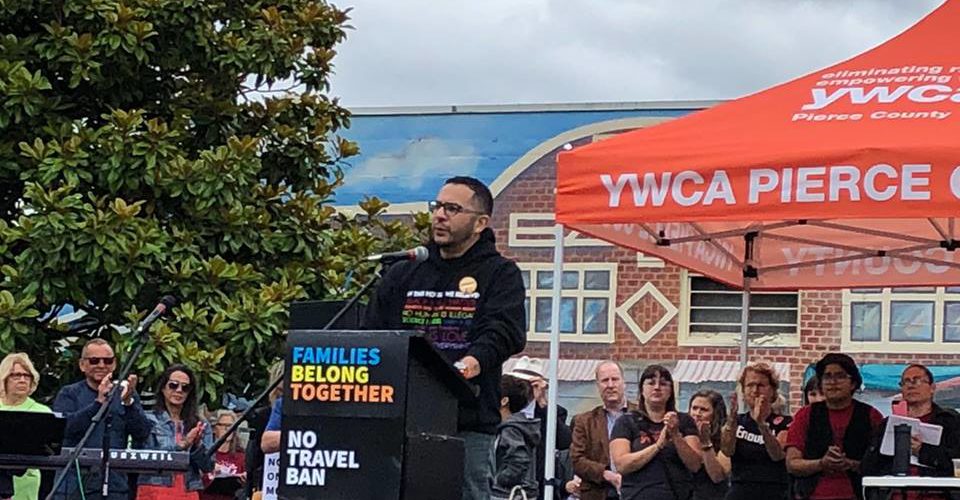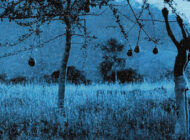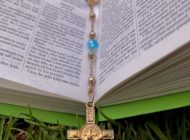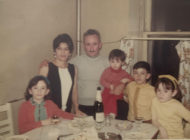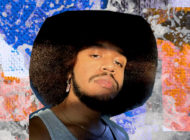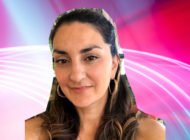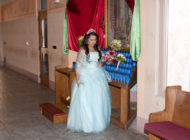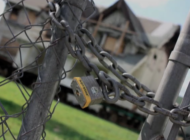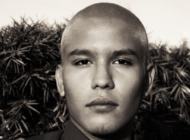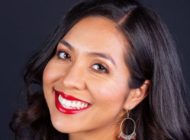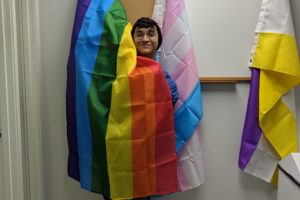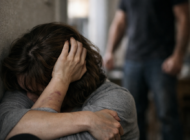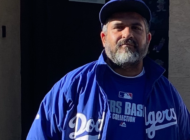Both ordained deacon Ross Murray and queer theologist/Latinx activist Manny Santiago educate ministries and churches of different religions on how they can empower the LGBTQ community and seek reconciliation between LGBTQ people and their faith.
Por XÓCHITL HERNÁNDEZ
EL NUEVO SOL
“For I am convinced that neither death nor life, neither angels nor demons, neither the present nor the future, nor any powers, neither height nor depth, nor anything else in all creation, will be able to separate us from the love of God that is in Christ Jesus our Lord.”
Romans 8:38-39 (New International Version) of the Bible’s New Testament. This is Ross Murray’s favorite Bible passage to use when he ministers to people, as an ordained deacon of the Lutheran Church, and openly gay man.
In addition to being an ordained deacon, Ross has been working for GLAAD (Gays and Lesbians Alliance Against Defamation) an organization dedicated to improving the representation and advancement of the LGBTQ community, as Director of Education and Training for the past eight years. Ross has always believed that we are all here on this earth to fulfill God’s calling upon our lives. One day, he asked himself: “How can I use the background of my faith to make churches more accepting of the LGBTQ community, which would then influence not only the rest of the United States but also the world?”
Ross answered this question by fulfilling what he does in his career, working as a gay, Christian leader to rectify the unity between the church and the LGBTQ community through effective media coverage. For GLAAD’s Religion, Faith and Values program, Ross conducts trainings and workshops dedicated to educating leaders of different religions about the acceptance of the LGBTQ community. His other project, The Naming Project, is a ministry of youth church camps for those who are struggling with their sexuality or gender identification.
In addition, the Religion, Faith and Values program amplifies the voices of the LGBTQ community of different religions around the world in multimedia platforms. This program is designed to eradicate the false idea represented by the media that religious groups are a society against the LGBTQ community according to the Missing Voices study.
Missing Voices, created by the joint effort of GLAAD and the Center for Religion and Professions of the University of Missouri, focused on analyzing the negative portrayal of the media on the opinions of faith communities against the LGBTQ community. The Missing Voices investigation spanned more than three years analyzing 316 LGBTQ news stories and 1,387 religious’ sources in both television and print media, finding disproportionate reports of religious intolerance against LGBTQ people.
Three out of four messages produced in the media regarding the attitudes of religious groups against the LGBTQ community were negative. This provides a toxic image for the general public, especially for the Latinx community (whose beliefs are mainly composed of Catholic and Christian religions), where there is a portrayal of religion against LGBTQ people or a God versus gay notion. Therefore, this makes it more difficult for the LGBTQ and Latinx community to seek acceptance in their communities and churches.
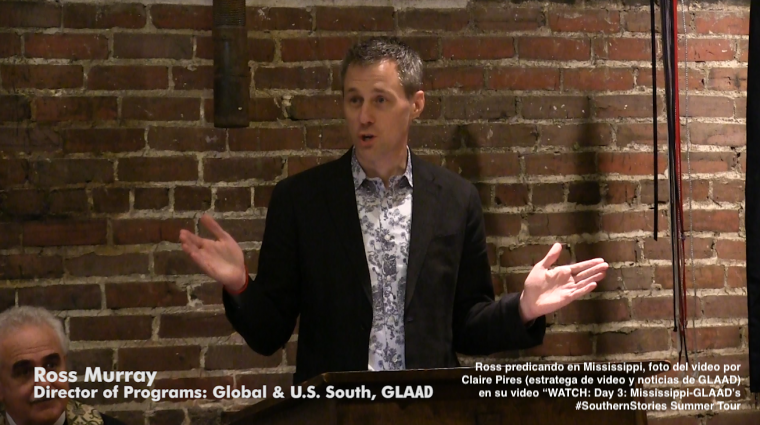
Ross Murray preaching at St. Alexis Episcopal Church in Mississippi on behalf of the LGBTQ community. Photo courtesy of Ross Murray.
Someone who was affected by this and who also worked with the Religion, Faith and Values program with Ross Murry was J. Manny Santiago, a gay and queer man who was born in a small, Puerto Rican town into a family that was part of the Christian denomination, American Baptist. Santiago remembers that he was always attracted to other males since he was young while struggling to try to have girlfriends and heterosexual attractions. The only example of a person with whom Santiago could identify with was his cousin, who was a trans woman.
Santiago remembers as a child thinking to himself: “I guess that’s what I am, but in reality, I do not think I’m that way either,” because Santiago identified himself as a cisgender man while his cousin was a transgender woman and gender non-conforming. He later came to identify himself as a gay and cisgender man and began the process of coming out while studying at the University of Puerto Rico in Mayagüez.
Years later, Santiago was able to attend seminary at the Andover Newton Theological School, sponsored by the Metropolitan Community Church in New York, which is a church founded by the LGBTQ community. On April 14, 2007, Santiago became the first ordained Latinx pastor of the American Baptist denomination.
Santiago soon realized another calling. He said, “I am very Latino which made me want to serve a Latinx community.” However, he would serve his Latino Baptist congregation as a closeted gay man. In the following years, Santiago served as a pastor of several other churches that accepted gay ministers.
Santiago is passionate about social justice for the Latinx and LGBTQ community. He also incorporates the intersectionality of Christian and queer theology. He recognizes that his faith played the most important impact in shaping his identity and sexuality and considers himself a theologian through a Christian perspective. Today, he is the executive director of The Rainbow Center in the city of Tacoma, Washington, and is accepted by his family and community. The only problem is that Santiago says we need to do more work to bridge the gap between the LGBTQ community and religion.
“Although I no longer identify myself as a Christian,” he says, “that was still the faith that shaped me and was my identity for many years, as it also can be for someone else at this time. Therefore, I want to help those people. I want the LGBTQ community to prosper in their faith.”
When asked what we need to do for the intersectionality of the LGBTQ community and the Latinx churches, he affirms that the first thing that must be done is to free ourselves from the “replicated” religion of our Spanish conqueror. “Once we get rid of this replica, we can make Christianity our own,” he says.
Santiago says that we have to “Latinize” the church and “… make Jesus part of our family, like our father or our uncle … and not hang the paintings of Jesus as a white man… rather let us make a brown Jesus, like he actually was.”
“Instead of singing the same traditional hymns, I would love to sing worship songs that speak about single mothers who became mothers at age 15 because there are many of them in the Latinx community,” he adds, “or songs about the hands of grandma making tortillas, the smells from mom’s kitchen, or dad getting up at five in the morning and how all of these things manifest God.”
Santiago argues that the understanding of the Latinx family has to be incorporated into religion. “We should make the relationship with Jesus and God more personal as part of our Latinx family which is more than the Anglo-American, nuclear family of just a mother and father. Rather, the Latinx family is not just our mother and father but also our aunt, uncle, cousins, neighbors and grandparents,” he says.
With this mindset, when it comes to welcoming LGBTQ people in Latinx churches and other congregations we “will not reject them because they are part of our family,” says Santiago. This is similar to the position of Ross Murray who says, “We are all children of God and our identity is in Christ, so when you are discriminating against someone who is part of the LGBTQ community, you go against your own faith and are violating the value of those people who are also children of God.”
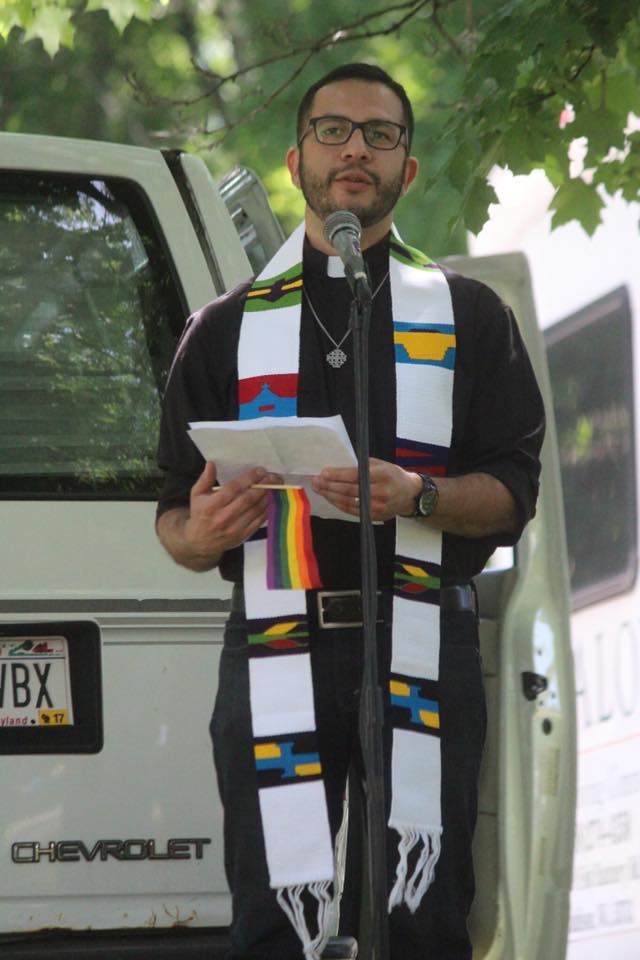
J. Manny Santiago in a “Families Belong Together” 2017 event in Tacoma, Washington. Photo courtesy of Manny Santiago.
Santiago’s understanding of how God was revealed to him through the lens of a gay man was monumental in his journey. “I came to understand God in a different way through many things,” he says. “One was the work of a feminist theologian, Ada María Isasi-Díaz, who focused not on telling people who God is, but on asking people who God is personally for them.”
In addition, the work of Argentine theologian Marcella Althaus-Reid, who wrote the book Indecent Theology, went to prostitutes in Buenos Aires and asked how they experience God while they work. This showed Santiago how everyone can experience the power of the Holy Spirit because the kingdom of God is for everyone and is part of our family.
Additionally, the work of Mayra Rivera, a Puerto Rican theologian, who studies the Old Testament of the Christian and Hebrew Bible, points out how many times “wisdom” is referred to as a woman, especially in the book of Proverbs. (In addition to the scriptures where it is shown that God not only has fatherly qualities, but also maternal qualities (Isaiah 49:15, Hosea 13:8, Psalm 22:9, Matthew 13:33). Additionally, in Genesis 1:27, God created both man and woman. Therefore, if he created the two, he must have both masculine and feminine characteristics according to the book Reading the Bible From the Margins by Miguel A. De La Torre).
This was revolutionary for Santiago.
“What a beautiful way to make God not only queer, but also trans,” he says. “The first person I could identify with was a trans woman and the people who protected me, after my parents threw me out when I told them I was gay, were trans women. From the beginning, it was the presence of God through the trans experience that protected me.”
Each religion has shown positive change to provide congregations of love and acceptance for the LGBTQ community and provide a platform of intersectional unity. The GLAAD Religion, Faith and Values website provides a list of churches organizations (local, national, and international) of many religions that accept and affirm the LGBTQ community as well the article “LGBT Religious and Spiritual Organizations, National and International” on the Huffington Post site. Additionally, what many do not realize is that there are a plethora of people in the LGBTQ community who have “solid spiritual lives,” says Ross Murray. When asked about his relationship with God, he says: “I have a very fun relationship with God!” The story of Murray and Santiago serves to remind us that God loves us all, has created each of us with a purpose, and is not out of reach from anyone.
For those who are from the LGBTQ Latinx community and who are struggling to find reconciliation with their faith and sexuality, remember that there is a God, Spirit and Jesus Christ who walked with the “least of these” (Matthew 25:40 in the New Testament of The Bible), which are the marginalized, discriminated against, or the minority in society. Some of the “least of these” nowadays are the countless murdered transgender women, the homeless gay and lesbian teenagers, or the bullied child who struggles with their gender identity.
As found in the Missing Voices study, the media must present a more balanced coverage that shows that religious groups are more receptive and welcoming of the LGBTQ community in order to provide safe spaces for LGBTQ people in their congregations. In this way, the high rate of suicide, depression and violence in the LGBTQ community can be diminished and simultaneously provide more awareness in our Latinx community. Thus, a rainbow bridge can unite the Latinx, LGBTQ community with their faiths.
Tags: Christianity community family GLAAD intersectional religion latinx LGBTQ Manny Santiago queer theology religión Ross Murray The Rainbow Center Xóchitl Hernández






